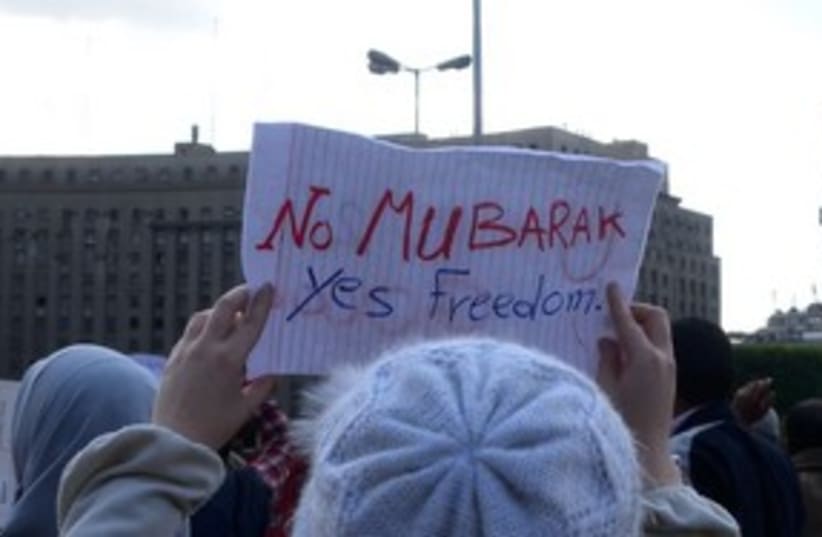Jordana Horn in New York contributed to this report.
Two El-AL planes carrying 400 Israelis return from Cairo
ElBaradei appears at main square to encourage demonstrators; 1000s of prisoners flee 4 jails attacked by protesters; Mideast stock markets drop.

Jordana Horn in New York contributed to this report.